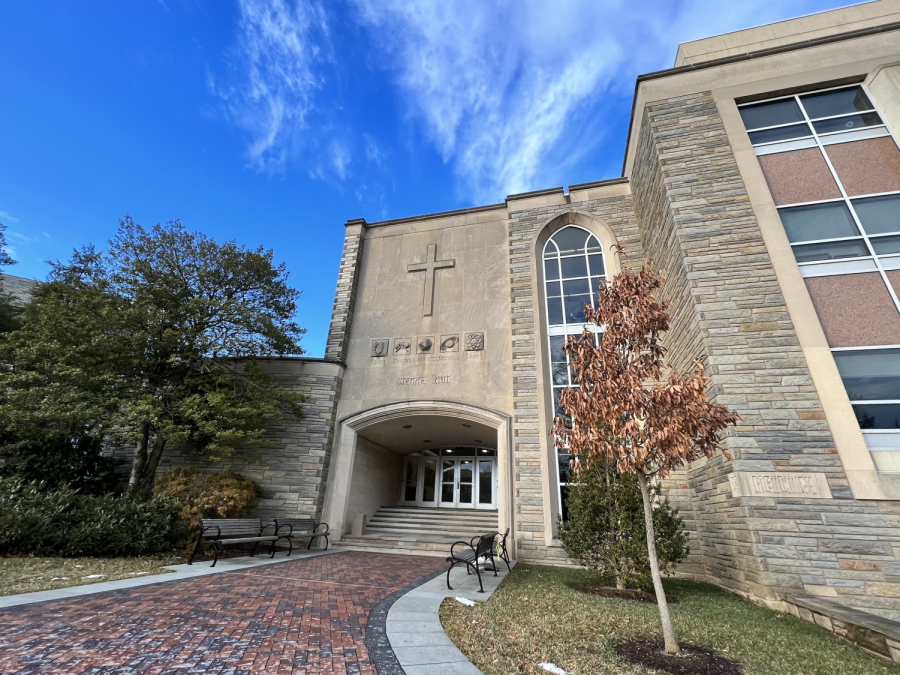Biology Professors Granted $1 Million for Wetlands Research
Olivia Pasquale/ Villanovan Photography
Mendel Hall, which is home to many Biology professors and their classes on campus.
February 1, 2023
The new semester has just begun and with that, new projects, new studies and new donations are already taking place to help enhance Villanova’s research department.
Villanova University’s finest professors in the science and environmental departments were selected to receive a generous grant to carry out research on the wetlands. The esteemed professors assigned to this project include Samantha Chapman, PhD, and Adam Langley, PhD, who are both professors in the Department of Biology and are two founding faculty members of the Center of Biodiversity and Ecosystem Stewardship in the College of Liberal Arts and Sciences. These key faculty members are part of the investigative team that were named to receive the $1 million grant from the National Science Foundation (NSF) to conduct this project research. The official name of the wetlands research project is “The Interplay of Nitrogen Loading and Ecosystem Sustainability in Threatened Wetlands.”
The members of the research team as well as other faculty members and Villanova’s community are grateful to the opportunities that this grant and research project allows for not only the faculty involved, but also for the students on the campus. Dr. Chapman and Dr. Langley have the ability to include more undergraduate and graduate researchers in their work and with this grant at least two Villanova graduate students and several undergraduate students will be able to be a part of this project’s team.
The wetlands research project is mainly focused on the dynamics of nitrogen in the wetland systems and the impact it causes. There are several origins of nitrogen pollution such as septic tanks, fertilizers and largely populated areas. A typical wetland system can remove vast amounts of nitrogen from the environment, but too much nitrogen pollution can be overwhelming for the wetlands to handle and can cause its collapse. The grant will support many experiments that the researchers will conduct in marshes and swamps, primarily in Florida, because it tends to produce high levels of nutrient pollution. This high pollution level is resulting in fish dying off and other negative consequences. Villanova’s professors and students will be working together with the University of Central Florida and the Guana Tolomato Matanzas National Estuarine Research Reserve to conduct this research project.
The goal of this project is to learn more about the effect of nutrient pollution on coastal wetlands and how ecosystems can remove nutrients. The work that will be done by the professors and students is pertinent to the current times. This will help the ecosystems and the people who are directly impacted as well. The experimentation will help answer pressing questions and conduct research that would not be possible without the support of NSF.
The grant is a very generous donation to Villanova University and will not only help research and solve pressing issues in the environment but will also create opportunities for young students to be a part of the research.











